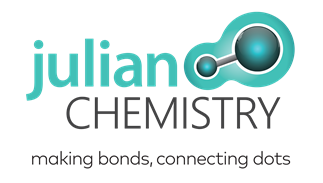Want to Save the World? Why We Need Chemistry Knowledge to Deal with Climate Change

Reasons to Start A-Level H2 Chemistry Tuition as Early as Possible
January 29, 2021
Study Skills Guide: How to Memorise Chemistry Lessons Better
May 5, 2021While going to school, many students wonder about the practical application of academic subjects. And many question the applicability of various disciplines in the real world. Do you wonder why you have to study chemistry or physics? Do you feel like the sciences aren’t going to impact your future, your career and even your existence in this world?
The truth of the matter is that scientific principles govern and guide just about everything in the universe.
Anyone who’s considering a career in an environmental discipline should definitely focus on sciences, especially on chemistry. Even going for additional educational opportunities like high quality chemistry tuition in Singapore isn’t far-fetched.
Environmental conservation is heavily dependent on work with biological, chemical and physical principles. Here are some of the main reasons why fighting climate change is going to involve in-depth knowledge of high level chemistry.
How Chemistry Can Help Us Fight Climate Change
To put it in very broad terms, chemistry is the study of matter. Green chemistry is a sub-division of this science, pertaining to the creation of products and chemical solutions aimed at reducing and eliminating the generation of waste and other practices that have a negative impact on the environment.
Green chemistry can be used to accomplish an array of very important things like the prevention of pollution on a molecular level, the application of scientific principles to environmental problems, the reduction of wasteful resource utilisation through innovation and even the reduction of chemical/factory/industrial process impact on the environment.
Through green chemistry, professionals who combat climate change are attempting to revolutionise many traditional processes. From lowering the reliance on non-renewable energy sources to bringing down the carbon footprint of large production facilities, these researchers are combatting climate change and saving our planet by harnessing the power of chemistry.
Green chemistry tackles many difficult topics and aims to offer innovative solutions. One of these topics, for example, is the production of CO2 as a waste material in many processes. Chemists are now trying to come up with ways to use CO2 as a source of energy instead of just having it as a waste product.
And this is just one example how intricate knowledge of chemistry can be applied to the climate change challenges the world is facing today. On top of offering reliable, environmentally-friendly solutions, green chemistry is also attempting to reduce many industrial costs and the use of limited resources by offering more economical and greener alternatives.
Our Environment Is Changing and We Have Responsibilities Towards the Planet
Undoubtedly, our environment is changing. Air pollution, global warming, wasteful industrial processes are impacting our world, our health and existence.
Scientists have the knowledge (and the responsibility) to counter such changes in the most effective manner possible.
Chemistry is one of the key disciplines that can mitigate the effects of climate change and help the world adapt.
Over the years, chemists have carried out a lot of research that contributed to the publication of numerous research papers and the formulation of practical solutions. The choices we make right now as human beings can have profound effects on generations to come. This is why the brightest minds are attempting to change the status-quo through the power of science and technological advances.
Green chemistry is just one sub-field that can have a profound positive effect on the future of the world.
Synthetic chemistry is another key discipline that delivers viable alternatives to the wasteful, pollution-generating processes of today.
The term synthetic chemistry refers to the study and the creation of new forms of matter. Through the power of synthetic chemistry, for example, researchers can build new materials that produce less pollution, conserve resources and help for more effective climate change combating.
Such advances are already a fact.
Columbia University and University of South Carolina researchers published a report in May 2020, describing the development of a new gas membrane material that is highly effective at removing CO2 from the air.
The advanced gas separation membranes are based on numerous technological advances and synthetic chemistry principles. Through machine learning, researchers have made it possible to vary the chemical structure of membranes for more effective capture of pollutants. According to the preliminary report, the technology being utilised can create thousands of variations in chemical structure.
When you think about it, the possibilities are limitless. And it all starts with the simple chemistry lessons at school.
Do You Want to Be One of the Chemists Changing the Future?
It’s pretty clear that scientists and tech pioneers will be the ones that will change everyone’s future for the better. If you’d like to join the ranks of such thought and innovation leaders, you’ll have to start with the basics.
Good A level chemistry tuition in Singapore is a reliable opportunity for building solid foundations. Moving on to O level chemistry is the next big step, especially if you’d like to continue pursuing a relevant higher education degree.
Luckily, you have an array of excellent education opportunities you can pursue in Singapore before going to a college or university of choice.
Julian Chemistry has a high quality range of chemistry tuition programmes developed by our highly experienced principal tutor Miss Raene Lim. The holder of numerous degrees and recipient of several pedagogical awards, Miss Raene Lim is passionate about helping students discover their inner strength and scientific brilliance.
If you’re interested in the Julian Chemistry programmes, please contact us now to ask some questions or get started with high quality chemistry tuition.




